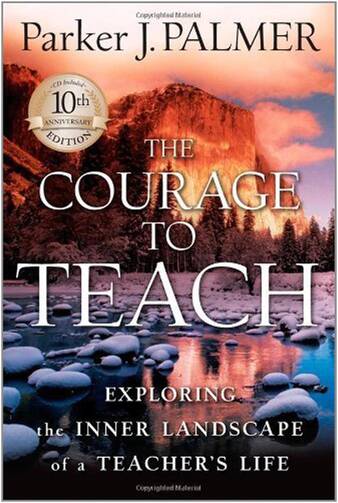I've recently returned to The Courage to Teach by Parker J. Palmer for fresh inspiration for upcoming projects, and it has delivered.
Palmer, the author of nine books and founder of the Center for Courage & Renewal, writes in ways that resonate with the Catholic, Ignatian tradition (Palmer is a Quaker). He offers a contemplative, spiritual outlook on the nature of teaching, and he advocates not just for education, but for educators, the men and women who stand before students to offer their gifts and talents in pursuit of intellectual discovery.
In the opening pages of The Courage to Teach, Palmer says: "This book builds upon a simple premise: good teaching cannot be reduced to technique; good teaching comes from the identity and integrity of the teacher." (Emphasis in original.)
In a context where much of a teacher's identity and personality—really, their sources of energy—are now marginalized in favor of devices and a "facilitative" role, it's refreshing to read Palmer's words. The best teachers don't want to be like tollbooth operators. They don't want to serve as academic cashiers. They care deeply about their work and want to be personally invested in the learning process, bringing their unique style and stories to their class and subject. Palmer captures it:
Many of us were called to teach by encountering not only a mentor but also a particular field of study. We were drawn to a body of knowledge because it shed light on our identity as well as on the world. We did not merely find a subject to teach—the subject also found us. We may recover the heart to teach by remembering how the subject evoked a sense of self that was only dormant in us before we encountered the subject's way of naming and framing life.
As we prepare for the resumption of the academic year, we might find Palmer's advice to be just the question we need to start recharged: How did our subjects, or how did our fields of study (counseling, coaching, etc.) evoke in us a sense of self that was once dormant? What first lit the fire, and how? And why?
You can find Palmer's book—along with his others—at Amazon.








